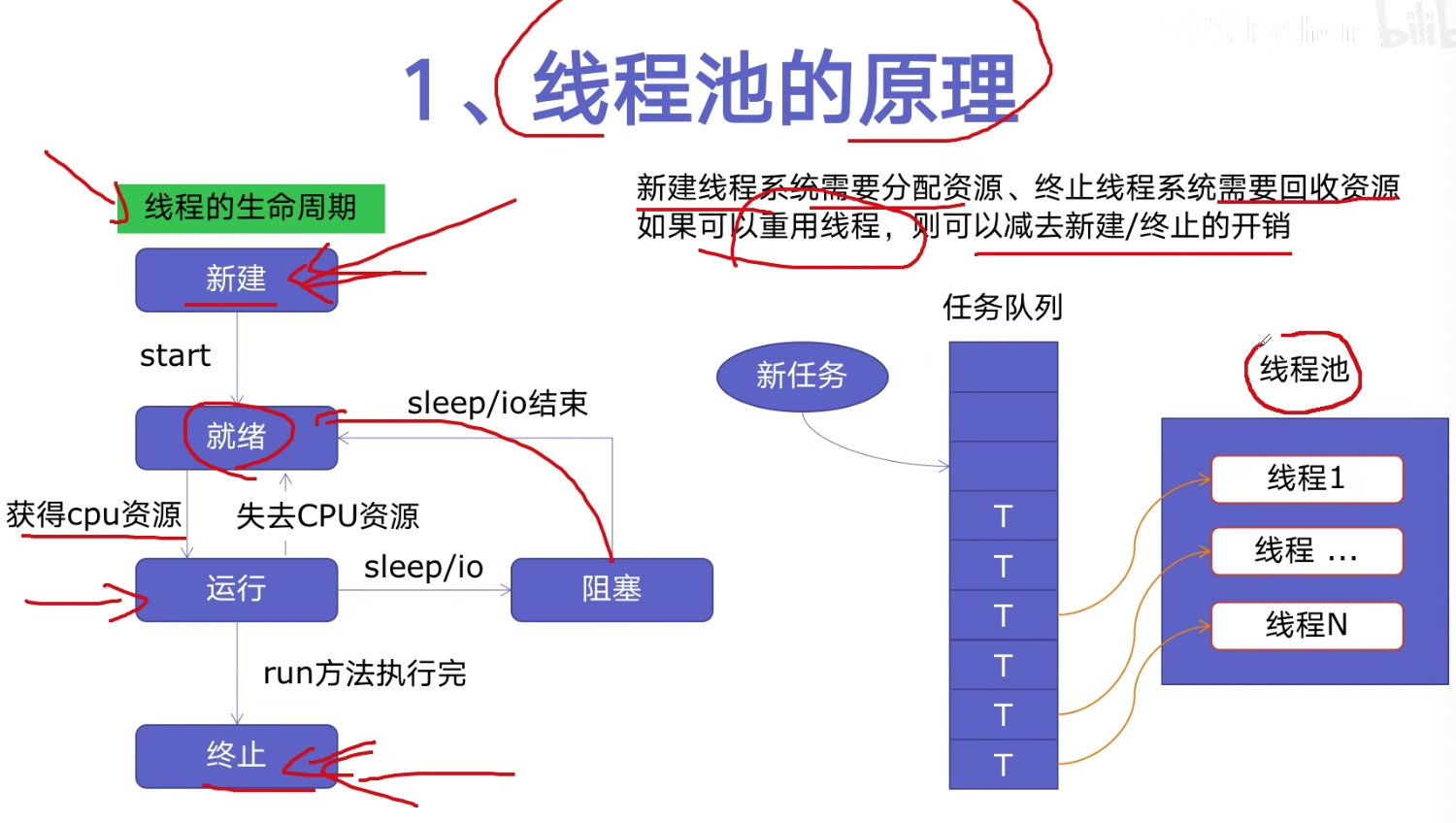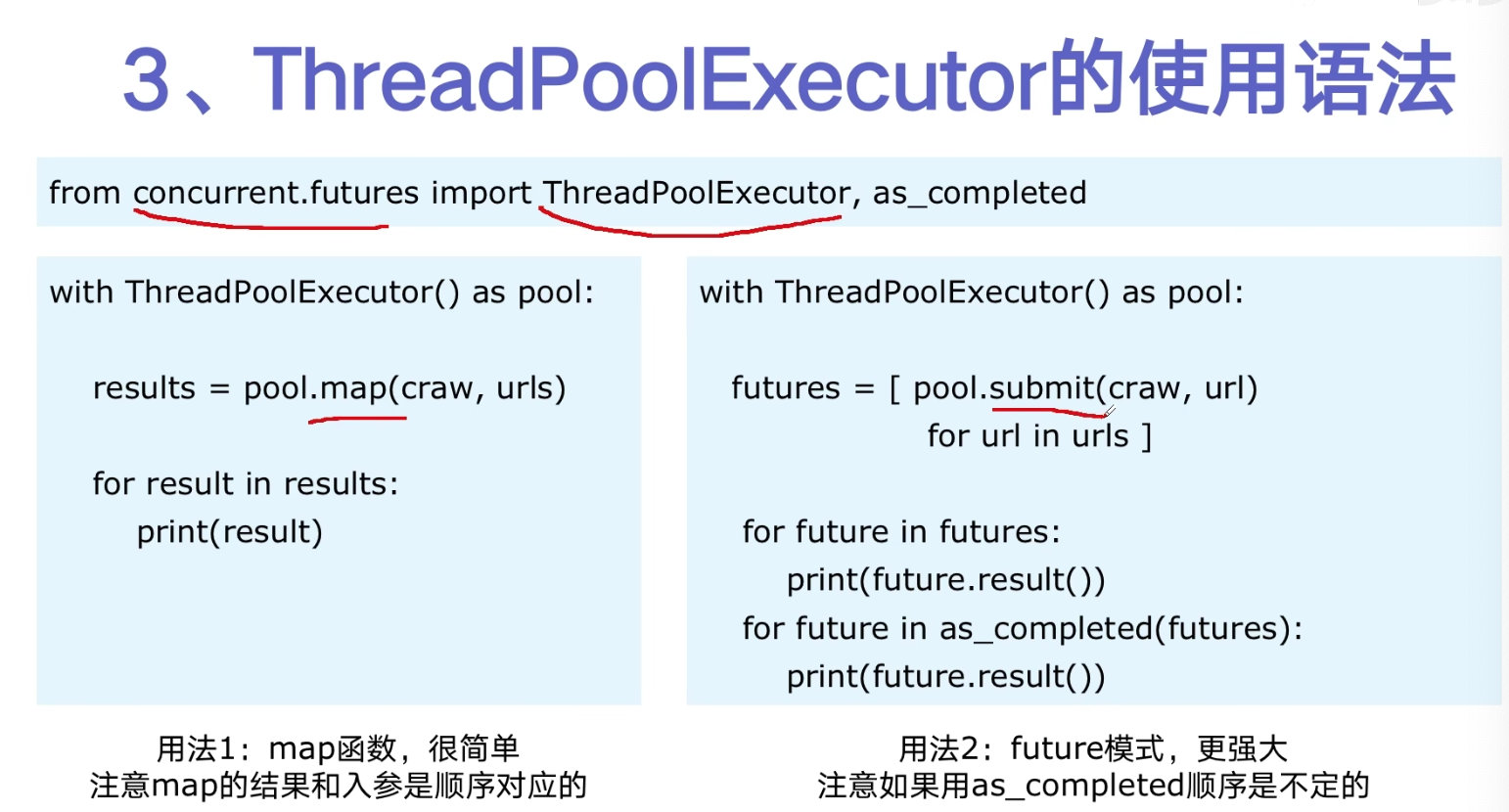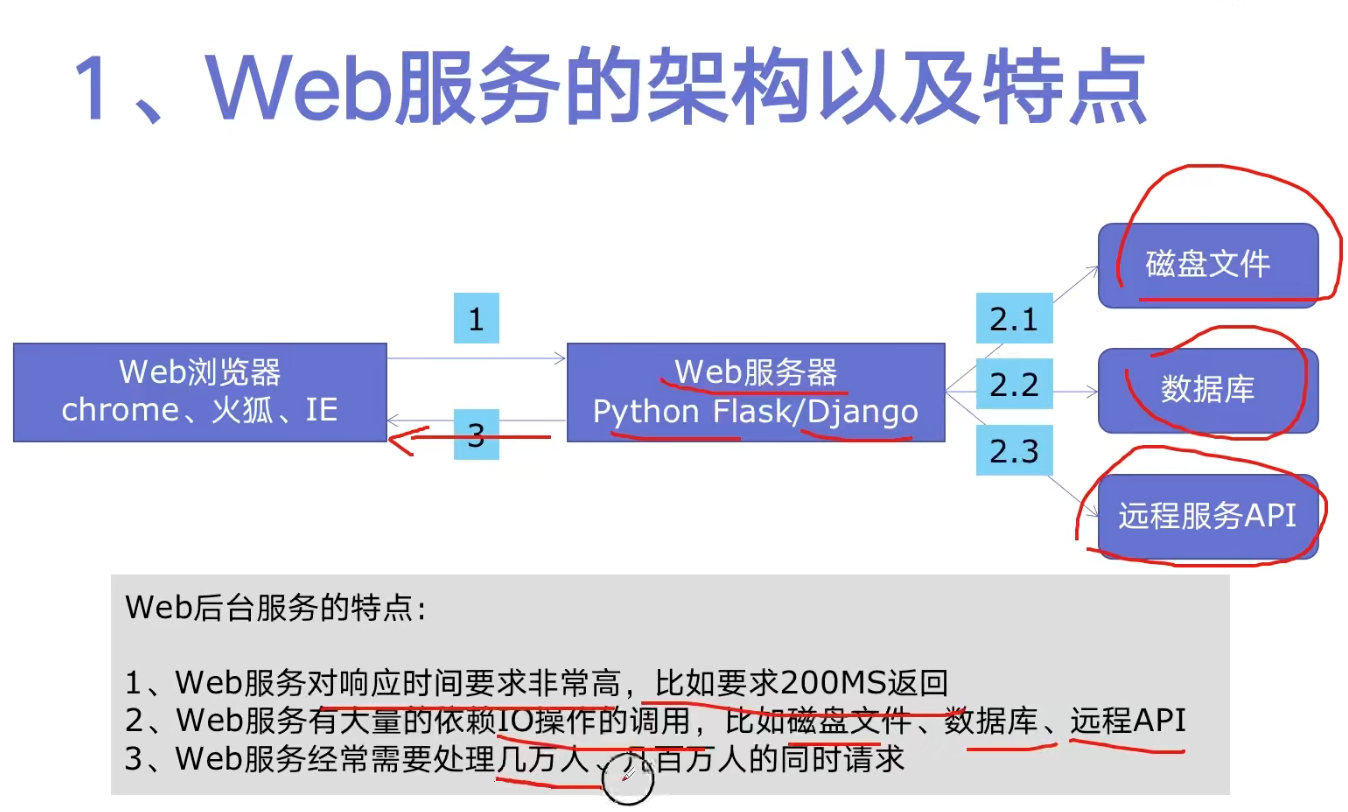python学习:python并发编程 - 06/07 线程池
一套不错的 python 并发编程教程
好用的线程池
- 新建/终止会有资源的时间的开销
- 好处: 提升了性能
- 场景:适合突发性大量请求,适合需要大量,每个任务时间短的场景
- 防御机制:避免系统中短时间大量的线程创建,资源占用过多情况
 线程池原理
线程池原理 线程池基本用法
线程池基本用法import concurrent.futures
import requests
from bs4 import BeautifulSoup
urls = [
f'https://www.cnblogs.com/#p{page}'
for page in range(1, 4 + 1)
]
def crawl(url):
html = requests.get(url).text
print(f'current urls is :{url}')
return html
def parse(html):
soup = BeautifulSoup(html, 'html.parser')
return soup.title.text
def main():
with concurrent.futures.ThreadPoolExecutor() as executor:
htmls = executor.map(crawl, urls)
print('crawl done')
with concurrent.futures.ThreadPoolExecutor() as executor:
urls_htmls = zip(urls, htmls)
futures = {}
for url, html in urls_htmls:
future = executor.submit(parse, html)
futures[future] = url
# 顺序的输出
# for future, url in futures.items():
# print(f'{url}: {future.result()}')
# 无序的输出
for future in concurrent.futures.as_completed(futures):
url = futures[future]
print(f'{url}: {future.result()}')
print('parse done')
if __name__ == '__main__':
main()
web 服务中使用线程池
 web服务的特点
web服务的特点web 中使用线程池的好处
- 方便的将磁盘文件,数据库,远程API的IO调用并发执行
- 线程池的数目不会无限创建(导致系统挂掉),具有防御功能
代码实战
- 没有 thread 的情况下,模拟 600ms 的延时
- 有 thread pool 的情况下,优化(不过,本机优化的效果不明显)
import flask
import time
import json
app = flask.Flask(__name__)
def result_file():
time.sleep(0.1)
return 'file'
def result_db():
time.sleep(0.2)
return 'db'
def result_api():
time.sleep(0.3)
return 'api'
@app.route('/')
def index():
res_file = result_file()
res_db = result_db()
res_api = result_api()
return json.dumps({
'file': res_file,
'db': res_db,
'api': res_api,
})
if __name__ == '__main__':
app.run()
$ time curl http://127.0.0.1:5000/
{"file": "file", "db": "db", "api": "api"}
real 0m0.757s
user 0m0.016s
sys 0m0.077s
import flask
import time
import json
from concurrent.futures import ThreadPoolExecutor
app = flask.Flask(__name__)
pool = ThreadPoolExecutor()
def result_file():
time.sleep(0.1)
return 'file'
def result_db():
time.sleep(0.2)
return 'db'
def result_api():
time.sleep(0.3)
return 'api'
@app.route('/')
def index():
res_file = pool.submit(result_file)
res_db = pool.submit(result_db)
res_api = pool.submit(result_api)
return json.dumps({
'file': res_file.result(),
'db': res_db.result(),
'api': res_api.result(),
})
if __name__ == '__main__':
app.run()
$ time curl http://127.0.0.1:5000/
{"file": "file", "db": "db", "api": "api"}
real 0m0.667s
user 0m0.017s
sys 0m0.016s
参考


